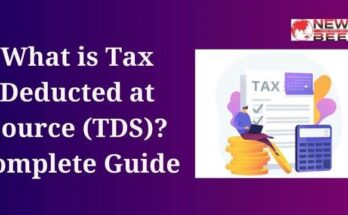Market regulator SEBI has today (28 November) issued new rules for continuing trading in case of technical problems. These new rules will come into effect from April 1. By issuing a circular, SEBI has ordered both the exchanges NSE and BSE to work as alternative trading venues for each other. SEBI says that trading will be shifted in case of technical problems.
According to the new rules, if there is a technical problem in the stock exchange Bombay Stock Exchange (BSE), then only the shares listed in BSE will be able to trade in the National Stock Exchange (NSE). At the same time, if there is a technical problem in NSE, only the shares listed in NSE will be able to trade on BSE. Stock exchanges have been asked to issue a Standard Operating Procedure (SOP) for this within the next 60 days.
F&O Deals Can Also be Offset
At present, NSE will only create a reserve list of BSE listed shares. Then BSE will only create a reserve list of shares listed on NSE. F&O deals of shares and indices can also be offset.
Positions of high co-related index can also be offset. The other exchange will be informed within 75 minutes of the defect in the exchange. As per the SOP, the alternative exchange will start trading the shares of the other.
The Disaster Recovery Site was Tested on September 28
Earlier, a special mock trading session was held at the National Stock Exchange (NSE) on Saturday, September 28, a holiday, to test the disaster recovery site. On this day, trading took place in the futures and options (F&O) segment along with the capital market from 12 noon to 1 pm. The disaster recovery site is tested so that the business of the stock exchange can run smoothly even in any emergency situation.
NSE and BSE Changed the Transaction Fees
NSE and BSE recently changed the transaction fees charged for cash and futures and options trade. The transaction fee for cash market in NSE is now Rs 2.97/lakh traded value. In the equity derivatives segment, the transaction fee in futures is Rs 1.73/lakh traded value.
While the premium value in options is Rs 35.03/lakh. In the currency derivatives segment, NSE has kept the transaction fee for futures at Rs 0.35/lakh traded value. While in currency options and interest rate options, this fee is Rs 31.1/lakh premium value.
Similarly, BSE has also changed its transaction fee. In the currency derivatives segment, a fee of Rs 45 is charged on a turnover value of Rs 1 crore on futures contracts (including cross currency futures). A fee of Rs 100 is charged on a premium turnover value of Rs 1 crore on BSE options.
You May Also Read:
What is Digital Marketing in Hindi
SEO Interview Questions and Answers
Sensex Closed at 79,043, Down 1190 Points
Sensex fell 1190 points (1.48%) on November 28 and closed at 79,043. Nifty also fell 360 points (1.49%), closing at 23,914. At the same time, BSE Smallcap rose 221 points (0.41%) to close at 54,782.
Out of 30 Sensex stocks, 29 fell and only 1 rose. Out of 50 Nifty stocks, 46 fell and 4 rose. NSE’s IT sector closed with the maximum decline of 2.39%.




